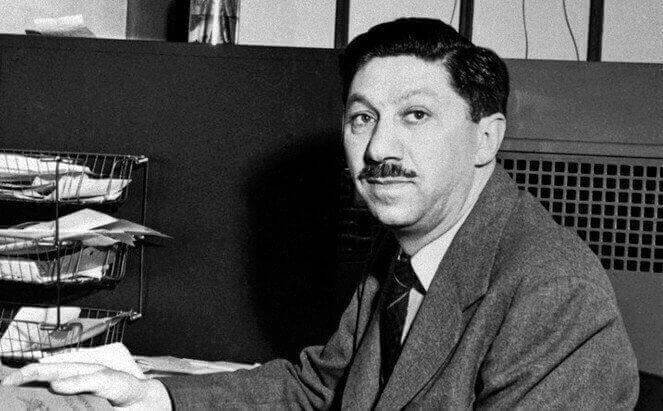The name Abraham Maslow is one of the most important in the history of psychology, considered the father of so-called “humanist psychology”, a current that can be placed at an intermediate point between psychoanalysis and behaviorism, and which has had a great influence on the development of psychology.
Abraham Maslow was the son of Jewish immigrants, born in Brooklin, New York, on April 1, 1908, his childhood was not easy, as he was discriminated against several times, perhaps that’s what motivated his interest in what is happening in his mind under certain circumstances.
- Maslow himself has repeatedly stated that he is not a happy child.
- And his difficulty in being accepted stimulated his curiosity.
- He made the library his second home.
- There.
- Submerged among the books.
- He began to cultivate a keen intelligence.
- Which always kept him among the best students.
“A musician must make music, an artist must paint, a poet must write. What can a man be, should he be? -Abraham Maslow?
In principle, Abraham Maslow believed that his passion was law, so he began to study law, but soon realized that his real fascination was psychology, so he decided to leave New York and start studying at the University of Wisconsin.
His life changed forever during this stage. He married an older cousin and met the one who would become his first mentor: Harry Harlow, and together they began to conduct the first studies on primates, especially sexual behavior and power relations in animal groups.
He later returned to New York, where he worked as a professor at Columbia University, where he met Edward Thorndike and Alfred Adler, the latter, very close to Sigmund Freud, became his second mentor.
Later, Maslow worked as a professor at New York University’s Brooklyn College, a particularly prolific period. There he met Erich Fromm and Karen Horney, two eminent psychologists who greatly enriched his vision.
Abraham Maslow was above all a great observer and a passionate researcher, beyond understanding human behavior, was motivated by the idea of finding ways to help others act to achieve it. Already in his graduation thesis, he had presented an initial theory that he called the hierarchy of Maslow’s needs.
Over time, this initial hierarchy became what was soon known as Maslow’s Needs Pyramid. In this work the main axes of his theory are condensed, which proposes the existence of a set of needs common to all human beings. the satisfaction of the most basic, even the most abstract.
Thus, Maslow proposes that the basis of his pyramid be the physiological needs, then, successively and upwards, the needs of security, social acceptance, self-esteem and finally self-realization.
As usual, at first, Maslow’s theories were not well received, some psychologists of the time, especially those of the behavioral current, categorized them as open in scientific terms, thinking that they had more humanism than psychology strictly speaking.
The psychoanalytic current also did not take these theories well, for its explanations departed from Freud’s basic postulates; however, Maslow himself gave credit to the Vienna psychoanalyst, although he indicated that his doctrine was insufficient to understand human behavior. studied only what belonged to neurotic behavior and should therefore be complemented by the study of healthy behavior.
Despite the resistances, Abraham Maslow’s theory gradually began to attract the attention of psychologists of his time, the idea that human beings had structured needs and that our well-being is conditioned by the way we classify/prioritize the satisfaction of these needs. It has also begun to attract intellectuals from other disciplines, such as sociology, anthropology and marketing, among others.
In 1967, the American Humanist Association named him Humanist of the Year. Maslow has never stopped being a teacher, but in his later years he has only worked as a teacher from time to time.
His time was absorbed by another of his projects that he unfortunately could not carry out. He died in 1970 and, from his postulates, laid the foundations for what would formally become the humanist current.

